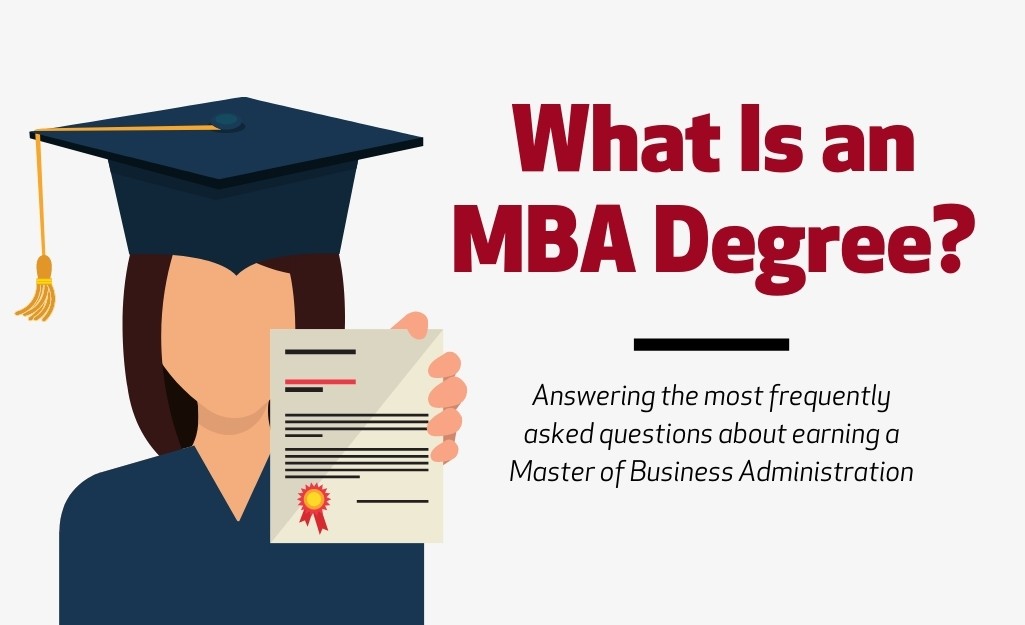In 2025, the landscape of business education continues to evolve, offering aspiring leaders a multitude of options to advance their careers. Selecting the right MBA program is crucial, as it can significantly impact one’s professional trajectory, network, and skill set. This article delves into the top MBA programs globally, providing insights into their offerings, strengths, and what makes them stand out in the competitive world of business education.
Key Takeaways
- Top MBA programs like HBS, Stanford, and INSEAD focus on leadership development, global exposure, and strategic thinking, making them ideal for future business leaders.
- Key factors when choosing an MBA include career goals, program duration, location, cost, and class format.
- An MBA opens doors to career advancement, salary increases, and global networking opportunities.
- Consider online and part-time options if you wish to continue working while pursuing your degree.
Understanding the Importance of an MBA

An MBA (Master of Business Administration) is more than just a degree; it’s a transformative experience that equips individuals with the knowledge, skills, and networks necessary to excel in leadership roles. Whether you’re aiming for a career in consulting, finance, entrepreneurship, or technology, an MBA can open doors to opportunities that might otherwise be inaccessible.
Key Benefits of Pursuing an MBA
- Enhanced Leadership Skills: MBA programs focus on developing strategic thinking, decision-making, and team management abilities.
- Networking Opportunities: Exposure to a diverse cohort of peers, alumni, and industry leaders can lead to valuable professional connections.
- Career Advancement: Graduates often experience accelerated career progression, with higher earning potential and access to top-tier roles.
- Global Perspective: Many programs offer international exposure, preparing students to navigate the complexities of global markets.
Top MBA Programs in 2025
Based on recent rankings and industry recognition, the following MBA programs are considered among the best for aspiring business leaders in 2025:
Stanford Graduate School of Business (GSB)
- Location: Stanford, California, USA
- Highlights: Consistently ranked as the top MBA program globally, Stanford GSB offers a rigorous curriculum, a collaborative environment, and access to Silicon Valley’s entrepreneurial ecosystem.
- Notable Alumni: Elon Musk, Phil Knight, and Reid Hoffman.
- Acceptance Rate: Approximately 6.1%, making it one of the most selective programs worldwide.
The Wharton School at the University of Pennsylvania
- Location: Philadelphia, Pennsylvania, USA
- Highlights: Known for its strength in finance and analytics, Wharton provides a comprehensive MBA experience with a wide range of electives and dual-degree options.
- Notable Alumni: Donald Trump, Sundar Pichai, and Warren Buffett.
- Average Salary Post-Graduation: $155,000.
MIT Sloan School of Management
- Location: Cambridge, Massachusetts, USA
- Highlights: Emphasizing innovation and entrepreneurship, MIT Sloan integrates technology and management, preparing students for leadership in tech-driven industries.
- Notable Alumni: Kofi Annan, Carly Fiorina, and Bill Ford.
- Unique Feature: The Action Learning Labs, which provide hands-on experience with real-world business challenges.
University of Chicago Booth School of Business
- Location: Chicago, Illinois, USA
- Highlights: Booth is renowned for its analytical approach to business education, offering a flexible curriculum that allows students to tailor their studies to their interests.
- Notable Alumni: Satya Nadella, Susan Wagner, and Eric Kriss.
- Strength: Strong emphasis on data-driven decision-making and economics.
Harvard Business School
- Location: Boston, Massachusetts, USA
- Highlights: Harvard’s MBA program is known for its case study method, immersive learning experiences, and a vast global alumni network.
- Notable Alumni: Michael Bloomberg, Sheryl Sandberg, and Ratan Tata.
- Global Reach: Offers extensive international exchange programs and global immersion opportunities.
IESE Business School
- Location: Barcelona, Spain
- Highlights: IESE offers a global MBA program with campuses in Europe, North America, and Africa, focusing on leadership development and ethical business practices.
- Rankings: Consistently ranked among the top MBA programs in Europe by the Financial Times.
- Diversity: Attracts students from over 50 countries, fostering a multicultural learning environment.
INSEAD
- Locations: Fontainebleau, France; Singapore; Abu Dhabi, UAE
- Highlights: Known as “The Business School for the World,” INSEAD offers a one-year MBA program with a diverse student body and a strong emphasis on international business.
- Notable Alumni: Tidjane Thiam, Ilian Mihov, and Frank-Jürgen Weise.
- Global Network: Strong connections with multinational corporations and international organizations.
Top 10 Global MBA Programs for 2025
Stanford Graduate School of Business (GSB) – USA
- QS Global MBA Rank: #1 with a perfect score of 100
- Strengths: Exceptional focus on entrepreneurship, leadership, and innovation, with strong ties to Silicon Valley.
- Key Metrics:
- Employability: 97.6
- Return on Investment: 90.9
The Wharton School, University of Pennsylvania – USA
- QS Global MBA Rank: #2 with a score of 99.8
- Strengths: Renowned for finance and international business studies, offering a vast range of electives and a global alumni network.
- Key Metrics:
- Employability: 98.6
- Return on Investment: 95
Harvard Business School – USA
- QS Global MBA Rank: #3 with a score of 99.4
- Strengths: Famous for its case method approach, providing hands-on learning experiences.
- Key Metrics:
- Employability: 96.4
- Return on Investment: 90.4
MIT Sloan School of Management – USA
- QS Global MBA Rank: #4 with a score of 99.2
- Strengths: Known for excellence in analytics, technology, and innovation, with a strong research foundation.
- Key Metrics:
- Employability: 98.6
- Return on Investment: 90.5
London Business School – UK
- QS Global MBA Rank: #5 with a score of 98.8
- Strengths: Offers a global perspective with a diverse student body and strong connections to European markets.
- Key Metrics:
- Employability: 98
- Return on Investment: 90.9
- Overall Score: 98.8
HEC Paris – France
- QS Global MBA Rank: #6 with a score of 98.6
- Strengths: Renowned for its strong academic curriculum and leadership development programs.
- Key Metrics:
- Employability: 97
- Return on Investment: 100
- Overall Score: 98.6
Cambridge Judge Business School – UK
- QS Global MBA Rank: #7 with a score of 97.4
- Strengths: Offers a strong entrepreneurial ecosystem and close ties to the tech industry.
- Key Metrics:
- Employability: 94.9
- Return on Investment: 94.4
- Overall Score: 97.4 GuideMe+20India Today+20Instagram+20
Columbia Business School – USA
- QS Global MBA Rank: #8 with a score of 96.9
- Strengths: Located in New York City, providing access to a vast network of industries and opportunities.
- Key Metrics:
- Employability: 97.3
- Return on Investment: 95.7
- Overall Score: 96.9
IE Business School – Spain
- QS Global MBA Rank: #9 with a score of 96.7
- Strengths: Known for its innovative approach to business education and strong focus on entrepreneurship.
- Key Metrics:
- Employability: 95.4
- Return on Investment: 98.7
- Overall Score: 96.7
IESE Business School – Spain
- QS Global MBA Rank: #10 with a score of 96.4
- Strengths: Offers a global perspective with campuses in Barcelona and New York, emphasizing leadership and ethics.
- Key Metrics:
- Employability: 97
- Return on Investment: 98.4
- Overall Score: 96.4
Factors to Consider When Choosing an MBA Program
| Factor | Description | Considerations |
|---|---|---|
| Career Goals | Determine how the program aligns with your long-term career ambitions. | Choose a program with specializations that fit your interests (e.g., finance, entrepreneurship, tech). |
| Program Duration | Full-time, part-time, or executive programs vary in length. | Full-time programs typically take 2 years; part-time or executive programs take longer but offer flexibility. |
| Location | Consider the program’s location in relation to your career aspirations and access to industry hubs. | Schools in cities like New York, London, or San Francisco offer direct access to global business networks. |
| Cost | Factor in tuition, fees, and other expenses. Consider available scholarships, loans, or employer sponsorships. | Top-tier programs can cost $100,000+; look for financial aid options to help offset costs. |
| Class Format | Choose between full-time, part-time, executive, or online MBA options based on your schedule and work life. | Full-time programs provide an immersive experience, while part-time and online programs allow you to work. |
| Global Exposure | Look for programs that offer international case studies, exchange programs, and a diverse cohort. | Programs with international components prepare you for leadership roles in a globalized business environment. |
Selecting the right MBA program involves evaluating several factors to ensure it aligns with your career goals and personal preferences:
Specializations Offered
Different programs offer various specializations such as finance, marketing, operations, entrepreneurship, and technology. Consider your career aspirations and choose a program that offers the specialization that best aligns with your goals.
Program Duration
MBA programs typically range from one to two years. One-year programs, like those offered by INSEAD and Kellogg, are intensive and allow for a quicker return to the workforce. Two-year programs, such as those at Harvard and Wharton, offer more time for internships and deeper exploration of electives.
Location
The location of the business school can influence your exposure to industries and job opportunities. Schools located in major business hubs, such as New York, London, or Singapore, may provide better networking and employment prospects.
Cost and Financial Aid

MBA programs can be expensive, with tuition fees ranging from $50,000 to over $100,000 per year. Consider the total cost of the program, including living expenses, and explore scholarship and loan options.
Return on Investment (ROI)
Evaluate the potential ROI by considering factors like average starting salary, career advancement opportunities, and the strength of the school’s alumni network.
Also Read :How an MBA Can Transform Your Career Path
Conclusion
In 2025, the best MBA programs for aspiring business leaders will continue to focus on developing the skills required for leadership, strategic thinking, and global business acumen. Programs like Harvard Business School, Stanford GSB, and INSEAD stand out for their strong reputations, diverse global networks, and leadership development initiatives.
While choosing the right MBA program depends on your personal and professional goals, the programs listed above offer robust frameworks that will prepare you for the challenges and opportunities of modern business leadership. Whether you are looking to break into the C-suite, switch industries, or scale your entrepreneurial venture, the right MBA program can provide the tools, knowledge, and connections needed to succeed.
Frequently Asked Questions (FAQs)
1. What is the average GMAT score required for top MBA programs?
Top MBA programs typically require GMAT scores between 700 and 750. However, some schools, like Stanford and MIT Sloan, may also accept GRE scores.
2. Can I pursue an MBA without a business undergraduate degree?
Yes, many MBA programs accept applicants from diverse academic backgrounds, including engineering, humanities, and sciences.
3. Are online MBA programs reputable?
Accredited online MBA programs can be reputable and offer flexibility for working professionals. However, they may not provide the same networking opportunities as full-time programs.
4. What is the average salary after completing an MBA?
The average salary varies by school and industry but typically ranges from $100,000 to $160,000 per year.
5. How important is work experience for MBA admissions?
Most top MBA programs prefer applicants with 2-5 years of professional work experience, as it enriches classroom discussions and group projects.
6. Are there MBA programs tailored for entrepreneurs?
Yes, several programs offer entrepreneurship-focused curricula, such as Stanford GSB and MIT Sloan, which provide resources and networks for aspiring entrepreneurs.
7. Should I pursue an MBA immediately after my undergraduate degree?
It depends on your career goals. Many students choose to gain work experience before pursuing an MBA to better understand their areas of interest and to make the most of the MBA experience.









